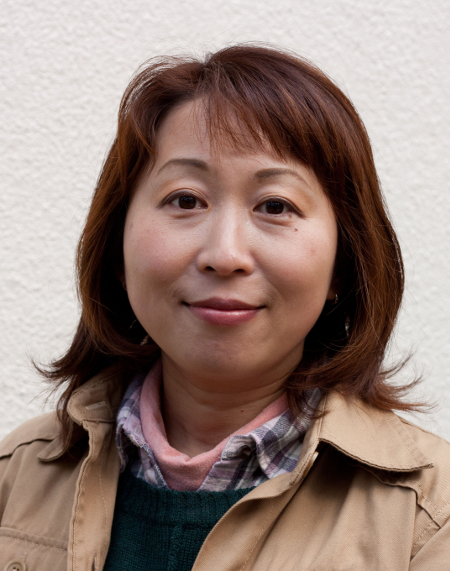 益尾知佐子,东京大学博士,现为九州大学(日本福冈市)比较社会文化研究院副教授。曾担任哈佛燕京学社共同研究学者(和傅高义教授合作,2014-15年)。1996-97年和2001-02年,在北京大学国际关系学院进修,研究东亚国际政治以及中国的对外政策。主要著书包括:《中国政治外交的转折点》(2010年,东京大学出版社);《中国的世界战略》(2011年,明石出版,合著);《中国外交史》(2017年,东京大学出版社,合著)。中国的老朋友们习惯叫她 “苏琪”。
益尾知佐子,东京大学博士,现为九州大学(日本福冈市)比较社会文化研究院副教授。曾担任哈佛燕京学社共同研究学者(和傅高义教授合作,2014-15年)。1996-97年和2001-02年,在北京大学国际关系学院进修,研究东亚国际政治以及中国的对外政策。主要著书包括:《中国政治外交的转折点》(2010年,东京大学出版社);《中国的世界战略》(2011年,明石出版,合著);《中国外交史》(2017年,东京大学出版社,合著)。中国的老朋友们习惯叫她 “苏琪”。Full Text
簡体字 / 正體字 / English摘要:
自2012年9月日本政府把尖阁诸岛/钓鱼岛“国有化”之後,中日两国之间的紧张关系持续发展。当时中国政府以日方单方面“背离中日两国老一辈领导人达成的”有关“钓鱼岛问题放一放,留待以後解决”的“谅解和共识”为藉口,开始以硬实力试图打破日方对钓鱼岛长期的实际控制。但另一方面,中国政府在1971年前根本没有正式提出过对钓鱼岛的主权主张。那麽,到今天,中国政府有关钓鱼岛主权的论述是怎样发展起来的呢? 中国政府历来的做法和中国国内的民族主义有什麽关系? 这篇文章首先利用一些资料和外交档案回顾了中华人民共和国围绕钓鱼岛的相关言行。第二,依据《人民日报》网络数据库,研究中国官方关於钓鱼岛论述的发展过程。第三,基於以上,简单地分析政府宣传和民族主义高涨之间的关系。文章的结论是中方主张的有关钓鱼岛“共识”是2000年代中期在反日民族主义的高涨的中国国内制造的,没有历史根据,但一旦创造出来就成为阻碍中日和解的棘手障碍。
摘要:
自2012年9月日本政府把尖閣諸島/釣魚島“國有化”之後,中日兩國之間的緊張關係持續發展。當時中國政府以日方單方面“背離中日兩國老一輩領導人達成的”有關“釣魚島問題放一放,留待以後解決”的“諒解和共識”為藉口,開始以硬實力試圖打破日方對釣魚島長期的實際控制。但另一方面,中國政府在1971年前根本沒有正式提出過對釣魚島的主權主張。那麼,到今天,中國政府有關釣魚島主權的論述是怎樣發展起來的呢? 中國政府歷來的做法和中國國內的民族主義有什麼關係? 這篇文章首先利用一些資料和外交檔案回顧了中華人民共和國圍繞釣魚島的相關言行。第二,依據《人民日報》網絡數據庫,研究中國官方關於釣魚島論述的發展過程。第三,基於以上,簡單地分析政府宣傳和民族主義高漲之間的關係。文章的結論是中方主張的有關釣魚島“共識”是2000年代中期在反日民族主義的高漲的中國國內製造的,沒有歷史根據,但一旦創造出來就成為阻礙中日和解的棘手障礙。
Abstract:
Since September 2012 when the Japanese government “nationalized” the Senkaku/ Diaoyu Islands, the tensions between Japan and China has been continuing. Upon the event, the Chinese authority insisted that Japan had taken unilateral measures which “ran counter to the understanding and consensus reached between the older generation of leaders of the two countries” on “leaving the issue of Diaoyu Dao to be resolved later.” Using this discourse, it justified its masculine attempts to break down the Japanese effective control over the islands that had been maintained over a century. On the other side, the Chinese government had never claimed the islands before 1971 officially. How has Chinese discourse on its sovereignty over the islands developed over the years? What is the relationship between the Chinese actions and the domestic nationalism observed in China? This paper first studies related materials and diplomatic records to review People’s Republic of China’s references to or behaviors on Diaoyu Islands. Secondly, it uses People’s Daily’s database to analyze how Chinese authority has developed its discourse over the islands. Thirdly, based on the above, it overviews the relationship between the political propaganda and the nationalism. The paper finds that the “consensus” over the islands was ungrounded, but created by China in mid 2000s when the anti-Japan nationalism was surging in its society. Yet, once it has been created, it became an obstacle to interrupt the reconciliation between the two countries.